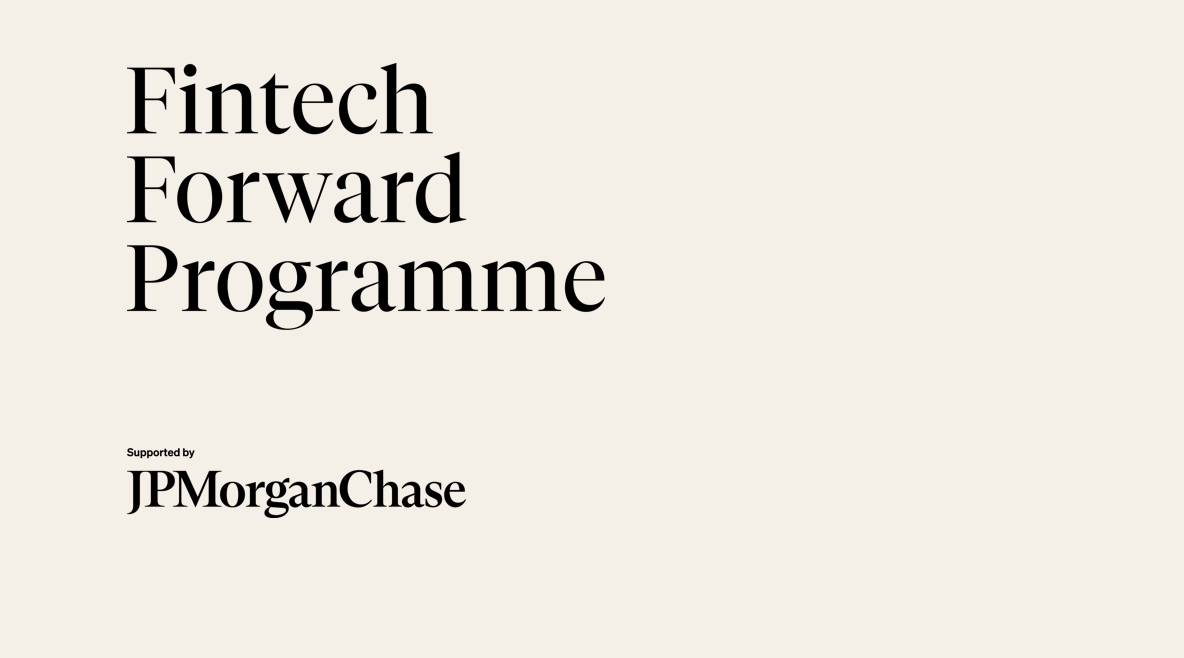“The Future is Unwritten”: Stephen Ingledew OBE on the Promise of FinTech

Stephen Ingledew OBE, Chair of FinTech Scotland, likens fintech to the new punk rock scene of the 1970s. “What punk rock did was allow anyone who wanted to form a band, play an instrument, and just get up there and be part of it. It allowed more women, for example, into music than any other genre,” he explained. “Fintech is similarly challenging the traditional ways in which innovation is done.”
We took the opportunity to interview Stephen Ingledew on the occasion of him being awarded an OBE for services to the UK fintech sector and asked him the following questions:
Congratulations on your OBE! Can you briefly describe your FinTech journey and the innovations that led to this recognition?
I suppose innovation has been in my blood for just under 40 years. I decided to come into the financial world to change it for the better because, for me, innovation is a means to improve the state of affairs for people, including financial wellness. From 2018, I was asked to set up and lead Fintech Scotland as a new organisation. This allowed me to use my experience of working in big companies, like Barclays, as well as small, innovative financial companies, and bring all these experts together to develop a cluster focused on genuine innovation using new technologies – which is precisely what Fintech is. And while fintech itself is not new, what has changed in the last 10 years or so is, firstly, an acceleration of the type of technology that can be applied, and secondly, the mindset of focusing on technology as a way of bringing about better outcomes for individuals, businesses and communities.
What makes fintech in Scotland stand out?
At FinTech Scotland, we are focused on the actual impact of the outcomes of innovation on consumers, whether that’s around issues like financial inclusion, financial crime or operational improvements for large financial firms. The FinTech Scotland cluster is about bringing people together who would not naturally do so, to drive better outcomes. Diversity is the key ingredient here. Scotland, albeit small, has a heritage of innovation, and brings together major players, bigger and smaller enterprises, and great universities. What’s crucial to our success is, rather than a narrow focus on Scotland, we see ourselves as part of the broader UK ecosystem. I happen to be one of the founders of the UK FinTech national network and believe strongly, therefore, in the value of working in collaboration with our other regional fintech groups, rather than in competition.
What emerging trends and technologies do you think will have the most significant impact on the financial sector, both in Scotland and beyond?
What’s most exciting is the way that the cluster approach allows us to cut through the financial world into horizontal sectors of other parts of the economy. So, for example, fintech can work with SpaceTech, HealthTech and ClimateTech. I have a little saying, that fintech is far too important to leave up to the financial services industry on its own. After 40 years in the industry, I can say that we’ve not always got things right. To improve on this we need more diverse minds around the table, for instance, consumer groups impacted by the innovation. We need to listen to the users themselves, not those who think they know what’s best.
Winning an OBE is a significant achievement. How do you plan to leverage this recognition to inspire and contribute to the fintech community in Scotland?
Hopefully it will encourage more people who wouldn’t normally have thought of fintech to actually reach out and get involved. Of course, I’m very humbled by the recognition, but it wouldn’t have happened if it wasn’t for the enablement of the three Teams’: the wonderful team at FinTech Scotland; the Scottish fintech cluster team (comprised of entrepreneurs, established industry players, academics, economic agencies like Scottish Enterprise, and investor and consumer groups); and the UK team including industry, regional fintech associations, Innovate UK, the FCA, the Centre for Finance Innovation and Technology (CFIT) and Innovate Finance amongst others. This is a great example of the whole being greater than the parts. By joining up with the UK as a whole we can recognise bigger ambitions and achieve more success for the Scottish cluster as a whole.
Can you share a memorable success story or milestone in your fintech career that you’re proud of and exemplifies your contributions to fintech?
FinTech Scotland winning the silver cluster excellent accreditation from the European Secretariat for Cluster Accreditation was an important recognition that we’re on the right track to what we are trying to achieve. Alongside that, we’re hosting the third annual UK FinTech Symposium this November, which engages the whole of the UK ecosystem, including UK government ministers, the FCA, the City of London, as well as all of the regional fintech groups, to share examples of best practice and how to build on that as a family
Personally, my motivation has come from meeting so many brilliant entrepreneurs who are inspired about improving some aspects of the financial world, whether that’s in terms of how people manage their money, through to payments mechanisms or handling new regulations. With the right mindset and the right technology, I believe things can be made better.
Joe Strummer, lead singer of the Clash, once said, “The future is unwritten”, because it is up to each one of us to break out and write our own future. Ultimately, there will always be room for improvement and, therefore, always room for innovation – and that will always be fintech, even if it is called punk rock.



